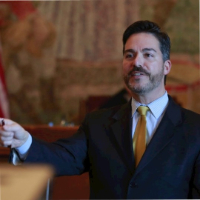Rutherford Misdemeanor Lawyer, New Jersey
Sponsored Law Firm
-
 x
x

Click For More Info:
-
Law Office of Mark S. Guralnick
55 Madison Avenue 4th Floor Morristown, NJ 07960» view mapCriminal Defense Law Dedicated. Fearless. Successful.
Mark S. Guralnick and his legal team have helped clients throughout the USA and across the world by applying unparalleled dedication and hard work to each case.
800-399-8371
Lindsay A. Bernstein
✓ VERIFIEDI am an experienced attorney in New Jersey with substantial experience in municipal court handling traffic matters and criminal cases. I work hand in ... (more)
Joel Bacher
✓ VERIFIEDThe Law Office of Joel M. Bacher, is located in Wayne, New Jersey. For over 40 years, I have been providing legal counsel to individuals and small bus... (more)
Albert Cernadas
✓ VERIFIEDAlbert Cernadas Jr. is the former First Assistant Prosecutor of Union County and Certified by the Supreme Court of New Jersey as a Criminal Attorney. ... (more)
FREE CONSULTATION
CONTACTAnthony John Van Zwaren
FREE CONSULTATION
CONTACTAdam Seidner
FREE CONSULTATION
CONTACTFREE CONSULTATION
CONTACT Mark Guralnick Morristown, NJ
Mark Guralnick Morristown, NJ AboutLaw Office of Mark S. Guralnick
AboutLaw Office of Mark S. Guralnick Practice AreasExpertise
Practice AreasExpertise



